Top 18 Health Benefits of Using Coconut Oil for Infants
- Is Coconut Oil Safe for Baby Massage?
- Different Types of Coconut Oil for Babies
- Benefits of Using Coconut Oil for Babies
- How to Massage Your Baby With Coconut Oil?
- How Can Someone Determine if Their Baby Has an Allergy to Coconut Oil or Not?
- What Are Some of the Other Substitutes If Baby Has Coconut Oil Allergy?
- FAQs
When it comes to selecting skin-care products for your baby, you just don’t want to go wrong. Selecting the right skin-care products for your baby is crucial, considering their susceptibility to skin conditions. Amid the myriad choices, coconut oil stands out as a natural remedy that effectively addresses various skin issues in infants, promoting soft and healthy skin. The unique properties of coconut oil make it a popular choice for parents seeking a gentle and safe option. Its moisturizing abilities can soothe dry skin, while its antimicrobial properties may help combat common skin ailments. To maximize the benefits, apply coconut oil to your baby’s skin regularly, providing a nourishing shield against potential skin issues. In this article, we shall take a look at the various benefits of coconut oil for baby
Is Coconut Oil Safe for Baby Massage?
Yes, coconut oil is generally safe for baby massage. It is a natural moisturizer with antimicrobial properties that can be gentle on a baby’s skin. Opt for organic, unrefined coconut oil and perform a patch test to ensure there are no adverse reactions. Always consult with a pediatrician before introducing new products for your baby’s skincare.
Different Types of Coconut Oil for Babies
When it comes to choosing the right coconut oil for your baby, considering different types is crucial for their delicate skin. Here, we’ll explore various types of coconut oil suitable for baby care.
1. Virgin Coconut Oil
Virgin coconut oil is minimally processed, retaining its natural aroma and nutrients. It is an excellent choice for baby massage as it is free from chemicals and additives, ensuring a gentle and nourishing experience for your little one.
2. Organic Coconut Oil
Organic coconut oil is derived from coconuts grown without synthetic pesticides or fertilizers. Opting for organic ensures that the oil is free from harmful residues, making it a safe and wholesome option for your baby’s skincare routine.
3. Cold-Pressed Coconut Oil
Cold-pressed coconut oil is extracted without the use of heat, preserving its nutritional content. This method results in an oil rich in antioxidants and essential fatty acids, providing additional benefits for your baby’s skin health.
4. Extra Virgin Coconut Oil
Similar to virgin coconut oil, extra virgin coconut oil undergoes minimal processing, making it a pure and natural choice. Its gentle composition makes it suitable for baby massage, helping to keep the skin soft and hydrated without any harsh chemicals.
Benefits of Using Coconut Oil for Babies
Exploring the diverse applications of coconut oil in infant care reveals its multifaceted benefits for a baby’s well-being. From addressing common discomforts like teething pain to nurturing delicate areas like earlobes and neck, coconut oil serves as a versatile and natural solution for various aspects of baby care.
1. Coconut Oil for Baby Massage
A good body massage soothes crying and fussy infants and, most importantly, helps them sleep. Using coconut oil for a massage is a good option, as it has anti-bacterial properties and is easily absorbed into the skin. Make sure you use a good quality coconut oil.
Tip: Use pure coconut oil for a baby massage for the best results.
2. Coconut Oil for Eczema
Eczema is a skin condition in which the skin becomes very dry and itchy. It is common in infants but usually disappears as the child grows. Using coconut oil for baby eczema can soothe dryness and provide relief.

Tips: If you are looking for baby eczema natural remedies, massage your baby with coconut oil before or after bath time. Also, massage your baby before bedtime for adequate moisture. Coconut oil has antibacterial properties, and you will see the condition decreasing with regular use.
3. Coconut Oil for Baby Hair Growth
Is coconut oil good for babies’ hair? Not many of us are aware that coconut oil is rich in medium-chain fatty acids (MCFAs). This type of fatty acid has antibacterial and antimicrobial properties, which nourish the scalp and help in eliminating sebum build-up from hair follicles. It is also high in the C12 chain of MCFAs which is called lauric acid. This property helps prevent protein loss from hair.
Tip: This is an effective remedy for baby dry scalp. Coconut oil, when massaged before bath time, helps replenish the skin and promotes hair growth.
4. Coconut Oil for Diaper Rash
Most babies suffer from diaper rash due to urine absorption and diaper quality. The moisturising and anti-fungal properties of coconut oil help prevent the occurrence and spread of diaper rash. Coconut oil can also be an effective cure for Candida Albicans, which causes fungal infections. Yeast diaper rash, a common ailment in babies, is effectively treated by coconut oil, which acts as a barrier between the soiled diaper and the affected skin.

Tip: Apply a layer of oil on your baby’s diaper area every time you change him. Gently massage it into the groin and in the folds of the skin.
5. Coconut Oil for Moisturised Skin
Coconut oil is rich in vitamins and healthy fats and works as a natural moisturiser for the skin.
Tip: Simply dab some oil on the baby’s dry skin and massage until it absorbs. Coconut oil moisturises the skin when left on until you give the baby a bath. However, if the skin is persistently dry, do see a doctor.
6. Coconut Oil for Baby Acne
Babies sometimes develop tiny red bumps or pimples, which could be swollen or itchy. Such breakouts could be acne, and if touched, there are chances of infection. Coconut oil for baby acne is a tried and tested remedy. The lauric acid in coconut kills the bacteria-causing acne and also prevents scarring after the condition disappears.

Tip: Rub the oil lightly between your fingers to warm it before applying on the acne. You can later wash it off with warm water or leave it on. Do make sure you check with your paediatrician before using it.
7. Coconut Oil in Baby Food
If you have never cooked food in coconut oil, you may be wondering ‘is coconut oil safe to eat?’ There are several benefits of adding coconut oil to your homemade baby food. The oil is a good source of fat and calories for your baby and is considered safe for consumption. If you are apprehensive about using it, you could consult your doctor before doing so.
Tip: You can use the oil for cooking just like normal oil.
8. Coconut Oil for Constipation in Babies
Coconut oil is hypoallergenic and contains lauric acid that eases digestion and provides relief from constipation.
Tips: You can mix half a teaspoon of virgin coconut oil in your baby’s breakfast but ensure that the baby takes enough fluids to encourage bowel movements. You can even rub some oil in the perineum (the area between the anus and the scrotum) and leave it overnight.
9. Coconut Oil for Cradle Crap
Most newborns develop cradle crap or dry scalp. The condition is usually caused due to hormonal changes toward the end of pregnancy and is symptomised by a flaky scalp that looks like dandruff. The condition is also known as seborrheic dermatitis or seborrhea. The anti-bacterial property of coconut oil works wonders in curing this.

Tip: After you apply the oil on the scalp, let it stay on for 20 minutes. Then, brush off the flakes using a soft baby brush. Once the flakes come off, you can wash the oil off with lukewarm water.
10. Coconut Oil for Baby Chapped Lips
Chapped and dry lips can be painful for babies and can make breastfeeding difficult. The condition can get exacerbated if the baby constantly licks his lips to ease the pain.
Tip: Dip your fingers in oil and smear it on your baby’s lips and the area around it. If you want to get the maximum benefits of coconut oil for babies, make sure you use organic, virgin coconut oil instead of the refined version.
11. Soothing Relief for Teething Pain
Coconut oil can be applied topically on a baby’s gums to alleviate teething discomfort. Its natural properties may help reduce inflammation and provide a soothing effect during this challenging phase.
Tip: Gently warm a small amount of coconut oil to room temperature and use a clean finger or a soft baby toothbrush to massage it onto your baby’s gums.
12. Natural Remedy for Minor Scrapes and Scratches
The antimicrobial and anti-inflammatory characteristics of coconut oil make it a safe option for treating minor cuts, scrapes, or scratches on a baby’s delicate skin, promoting healing.
Tip: Clean the affected area with mild soap and water, then apply a thin layer of coconut oil. For added benefits, cover the area with a sterile bandage to keep it clean.
13. Preventing and Soothing Baby Sunburns
Coconut oil can be used as a natural remedy for mild sunburns in babies. Its moisturizing and cooling properties may help soothe the skin and promote recovery from sun exposure.
Tip: Mix a few drops of aloe vera gel with coconut oil to create a cooling and moisturizing blend. Apply this mixture gently to the sunburned areas, allowing the soothing properties of both ingredients to alleviate discomfort and promote healing.
14. Promoting Healthy Baby Nails and Cuticles
Coconut oil’s moisturizing benefits extend to the nails and cuticles. Gently massaging a small amount onto your baby’s nails and cuticles can help keep them moisturized and prevent dryness.
Tip: Before bedtime, gently massage a small amount of coconut oil onto your baby’s nails and cuticles. This can be a part of your nightly routine to keep the nails and surrounding skin moisturized, promoting healthy nail growth.
15. Alleviating Baby Earaches
Coconut oil’s anti-inflammatory properties may offer relief for minor earaches.
Tip: Warm a small amount of coconut oil and apply it around the outer ear using a cotton ball. Ensure not to insert anything into the ear canal.
16. Nourishing Baby’s Delicate Earlobes
The skin on a baby’s earlobes is delicate and prone to dryness. Applying a small amount of coconut oil can help keep the skin moisturized and prevent chapping.
Tip: Apply a tiny amount of coconut oil to your clean fingertips and gently massage it onto your baby’s earlobes. This can be done after bath time or as needed to maintain moisture and prevent dryness in the delicate earlobe area.
17. Natural Treatment for Baby Bug Bites
The anti-inflammatory and soothing qualities of coconut oil make it an effective remedy for relieving itching and irritation caused by bug bites.
Tip: Mix a drop or two of lavender essential oil with coconut oil. Apply this mixture to the affected areas to soothe itching caused by bug bites.
18. Maintaining Baby’s Soft and Supple Neck
The skin on a baby’s neck is sensitive and prone to folds. Applying a small amount of coconut oil helps maintain its softness, preventing dryness or irritation in the delicate neck area.
Tip: After your baby’s bath, when the skin is clean, apply a small amount of coconut oil to the neck area. Gently massage in circular motions to ensure even coverage. This routine helps maintain the softness of the neck and prevents dryness or irritation.
How to Massage Your Baby With Coconut Oil?
Introducing your baby to the soothing world of massage can be a delightful bonding experience, and incorporating coconut oil enhances the benefits by providing natural nourishment to their sensitive skin. From promoting relaxation to addressing common skin concerns, here’s a guide on how to massage your baby with coconut oil for a gentle and enjoyable experience.
- Select a pure and organic coconut oil, ensuring it is free from additives or synthetic fragrances. This guarantees a natural and safe massage experience for your baby.
- Gently warm the coconut oil by rubbing it between your palms or placing the container in warm water. This ensures a comfortable temperature for your baby’s skin during the massage.
- Set the mood for relaxation by choosing a quiet and warm space. Dim the lights, play soft music, and ensure the room is draft-free to create a soothing atmosphere.
- Start the massage with slow and gentle strokes over your baby’s body. Use light pressure and observe their cues for comfort. Gradually explore different areas, including arms, legs, and the back.
- Pay attention to your baby’s reactions throughout the massage. If they show signs of discomfort or restlessness, adjust your strokes or try a different technique. The key is to create a positive and enjoyable experience.
- Tailor the massage to address specific concerns such as dry skin or diaper rash. For these areas, apply a bit more coconut oil and use circular motions for added moisture and relief.
- Maintain eye contact with your baby and talk to them in a soothing voice during the massage. This enhances the bonding experience and helps your baby feel secure and loved.
- Gradually wind down the massage with slower and lighter strokes. This signals to your baby that the massage is concluding, preparing them for a peaceful transition, whether it’s naptime or bedtime.
How Can Someone Determine if Their Baby Has an Allergy to Coconut Oil or Not?
Determining if a baby has an allergy to coconut oil involves observing for signs of an adverse reaction after initial use. Begin with a patch test by applying a small amount of coconut oil on a small area of the baby’s skin. Monitor for any redness, itching, swelling, or other signs of irritation. If there are no adverse reactions, gradually introduce coconut oil in small amounts and observe for any allergic symptoms such as hives, difficulty breathing, or digestive issues. If any concerning symptoms arise, consult a pediatrician promptly to assess and confirm the presence of an allergy.
What Are Some of the Other Substitutes If Baby Has Coconut Oil Allergy?
If a baby has a coconut oil allergy, alternative oils can be considered for skincare and cooking. Some substitutes include:
- Jojoba Oil: Known for its hypoallergenic properties, jojoba oil is a gentle alternative for baby massage or moisturizing.
- Grapeseed Oil: Lightweight and non-comedogenic, grapeseed oil is suitable for baby skin and can be used in cooking.
- Olive Oil: Extra virgin olive oil is a versatile option for cooking and can be used sparingly for baby massage.
- Sunflower Oil: This mild and nourishing oil is a potential substitute for coconut oil in skincare routines.
- Shea Butter: A natural butter with moisturizing properties, shea butter can be an alternative to coconut oil in skin applications.
FAQs
1. Can You Apply Coconut Oil for Heat Rashes on Your Infant?
Yes, coconut oil can be applied to heat rashes on infants. Coconut oil for baby’s skin has moisturizing and anti-inflammatory properties may help soothe irritated skin. Perform a patch test first and ensure the oil is applied in moderation.
2. Can You Put Coconut Oil on Your One-Month-Old Baby’s Hair?
Yes, coconut oil can be applied to a one-month-old baby’s hair. It may help moisturize the scalp and prevent dryness. Use a small amount and ensure the oil is applied gently.
3. How Many Times Should You Do Coconut Oil Massage for Infants?
Coconut oil massages for infants can be done 2-3 times a week. However, the frequency can vary based on the baby’s skin sensitivity and needs. Observe the baby’s response and adjust the frequency accordingly, ensuring not to overuse the oil.
Coconut oil on newborns works like a miracle! Easily available and beneficial, coconut oil benefits for babies are within every mother’s reach. Make sure you have this multi-purpose oil at hand to easily soothe the many ailments which may bother your baby. In case there is a history of coconut allergy in your family, please check with the doctor before using coconut oil for your baby.
References/Resources:
1. Pupala. S, Rao. S, Strunk. T, Patole. S; Topical application of coconut oil to the skin of preterm infants: a systematic review (European Journal of Pediatrics); National Library of Medicine; https://pubmed.ncbi.nlm.nih.gov/31267223/; July 2019
2. Khatun. N, Islam. K, Das. K; Outcome of coconut oil massage in newborns (Journal of Neonatal Nursing); ScienceDirect; https://www.sciencedirect.com/science/article/abs/pii/S1355184121001162; April 2022
3. Konar. M, Islam. K, Roy. A, Ghosh. T; Effect of Virgin Coconut Oil Application on the Skin of Preterm Newborns: A Randomized Controlled Trial (Journal of Tropical Pediatrics); National Library of Medicine; https://pubmed.ncbi.nlm.nih.gov/31257430/; April 2020
4. Varma. S, Sivaprakasam. T, Arumugam. I, Dilip. N, et. al.; In vitro anti-inflammatory and skin protective properties of Virgin coconut oil; National Library of Medicine; https://www.ncbi.nlm.nih.gov/pmc/articles/PMC6335493/; January 2018
5. Get the Facts: Coconut Oil; National Eczema Association; https://nationaleczema.org/blog/get-the-facts-coconut-oil/
6. Thrush; American Academy of Pediatrics; https://www.healthychildren.org/English/tips-tools/symptom-checker/Pages/symptomviewer.aspx?symptom=Thrush
7. Baby Teething Pain; American Academy of Pediatrics; https://www.healthychildren.org/English/ages-stages/baby/teething-tooth-care/Pages/Teething-Pain.aspx
Also Read:
Home Remedies of Fever for Babies
Natural Remedies of Loose Motion in Infant
Home Remedies for Stomach Pain in Babies
Was This Article Helpful?
Parenting is a huge responsibility, for you as a caregiver, but also for us as a parenting content platform. We understand that and take our responsibility of creating credible content seriously. FirstCry Parenting articles are written and published only after extensive research using factually sound references to deliver quality content that is accurate, validated by experts, and completely reliable. To understand how we go about creating content that is credible, read our editorial policy here.







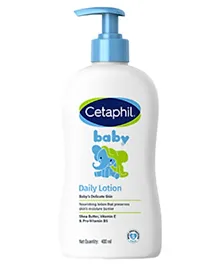
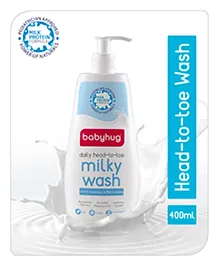
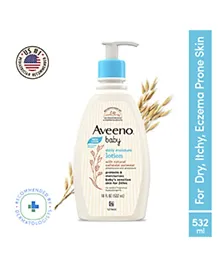
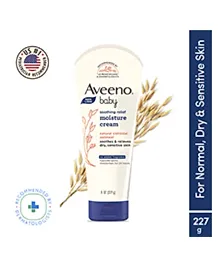
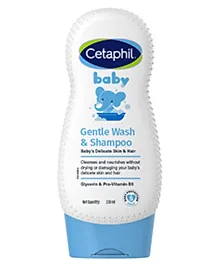
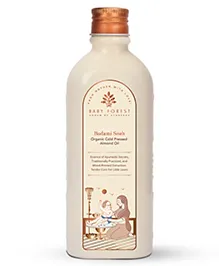
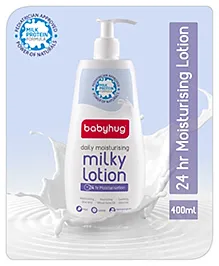
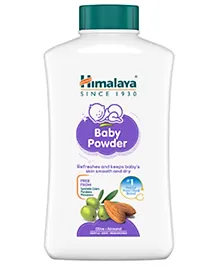







.svg)


















